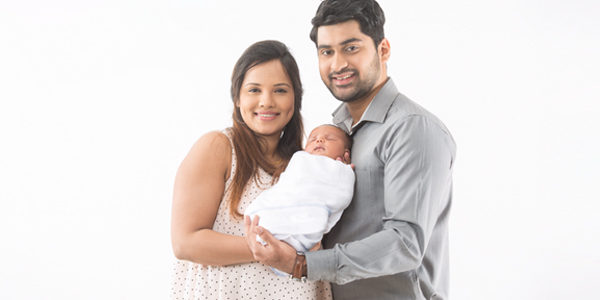Pregnancy and childbirth are often associated with their importance to expectant mother. We often overlook the significance of a father in these processes. This is more prominent in developing nations such as Sri Lanka where the responsibilities of parenthood are primarily dedicated towards mothers.
A study done by the Midwifery Department at the University of Chester, UK, looks into important insights through fathers’ encounters with pregnancy, birth and maternity care. The study recognises both the positive and negative impacts that are faced by expectant fathers and the vitality of their role in ensuring long-term health benefits for both mother and child. The involvement of a father in the nine-month long pregnancy and subsequent delivery allows the family unit to be more natural and stable. When the mother feels supported by her partner during the process, the probability of any negative post-partum emotional limitations is greatly reduced. It has specifically been shown that when the father is actively involved in the pregnancy and childbirth the rates of post-partum depression experienced by mothers shows significant reduction. In Sri Lanka, we help both mothers and fathers to recognise their role in ensuring a successful pregnancy for their family and provide services that help both individuals to prepare for the arrival of their new baby.
A study done on parent’s awareness of their unborn infant in the third trimester also recognised the ability of fathers to recognise their unborn child’s interactions. Both mothers and fathers felt the baby responding or initiating to interaction that they made. This agrees with the popular belief that babies react to the voice and touch of their parents. There have been no evidences to prove that this response is only limited to mothers. Instead, studies indicate that both parents can elicit such behaviors from their baby if they are in constant contact with him or her, even before birth.
Another study done on effects of father-neonate skin to skin contact on attachment shows the importance of the relationship between a new born and their father. While skin to skin contact have shown to improve the health of a newborn by stabilising their blood oxygen levels, body temperature and breathing rate, this contact also decreases parental anxiety. As a result while the child’s health improves, the father is also given a sense of comfort that allows them to enjoy fatherhood from the very start.
Therefore, the role a father plays in pregnancy, child birth and maternity care is critical in ensuring happiness and good health of the entire family unit.
References
Johnson, M. (2002). An Exploration of Men’s Experience and Role at Childbirth. The Journal of Men’s Studies, 10(2), 165–182.doi:10.3149/jms.1002.165
Stainton, M. C. (1990). Parents’ Awareness of Their Unborn Infant in the Third Trimester. Birth, 17(2), 92–96. doi:10.1111/j.1523-536x.1990.tb00707.x
Steen, M., Downe, S., Bamford, N., & Edozien, L. (2012). Not-patient and not-visitor: A metasynthesis fathers’ encounters with pregnancy, birth and maternity care. Midwifery, 28(4), 422–431.doi:10.1016/j.midw.2011.06.009








